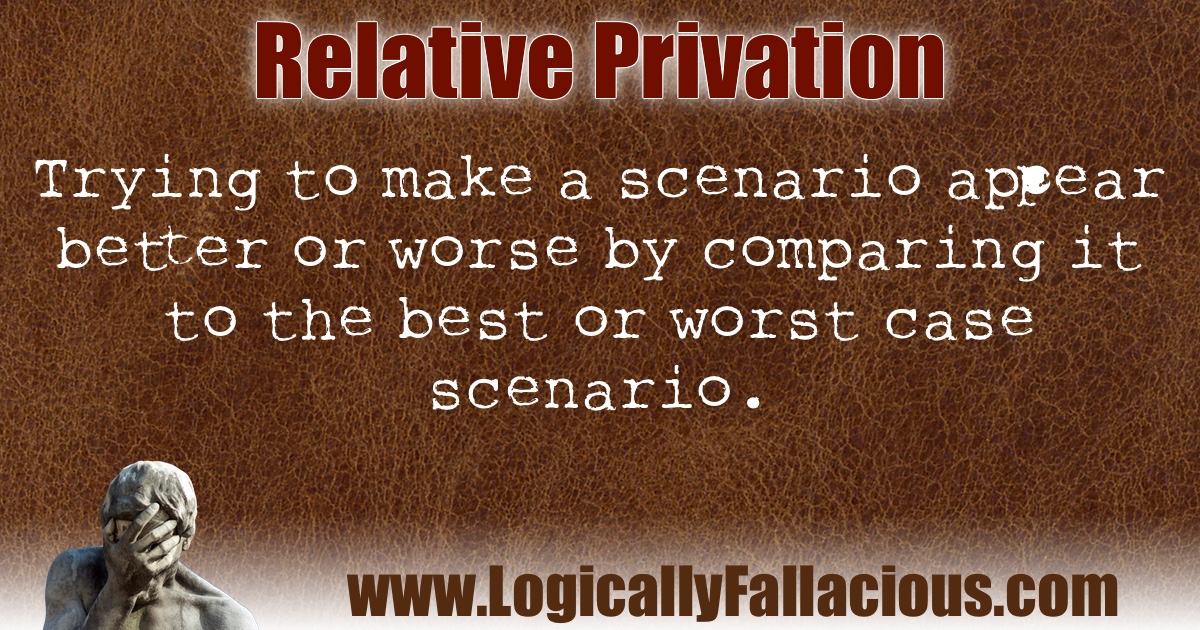(also known as: it could be worse, it could be better)
Description: Trying to make a scenario appear better or worse by comparing it to the best or worst case scenario.
Logical Forms:
Scenario S is presented.
Scenario B is presented as a best-case.
Therefore, Scenario S is not that good.
Scenario S is presented.
Scenario B is presented as a worst-case.
Therefore, Scenario S is very good.
Example #1:
Be happy with the 1972 Chevy Nova you drive. There are many people in this country who don’t even have a car.
Explanation: This person does have a very crappy car by any reasonable standard. Only comparing his situation with people who have no cars, does his Chevy Nova look like a Rolls Royce. It is fallacious to make a reasonable judgment based on these extreme cases.
Example #2:
Son: I am so excited! I got an “A” on my physics exam!
Dad: Why not an “A+”? This means that you answered something incorrectly. That is not acceptable!
Explanation: The poor kid is viewing his success from a very reasonable perspective based on norms. However, the father is using a best case scenario as a comparison, or a very unreasonable perspective. The conclusion “it is not acceptable,” is unreasonable and, therefore, fallacious.
Exception: When used intentionally to manipulate emotions (especially with good intentions), not to make an argument on reason, then this might be acceptable.
I know that you just lost your job, but at least you still have a great education and plenty of experience, which will help you get another job.
Fun Fact: My first car was a crappy, 1972 Chevy Nova that I bought for $50 in my sophomore year in high school. This was when I first learned about correlation. Me driving that car was strongly correlated with my lack of female companions.

This a logical fallacy frequently used on the Internet. No academic sources could be found.